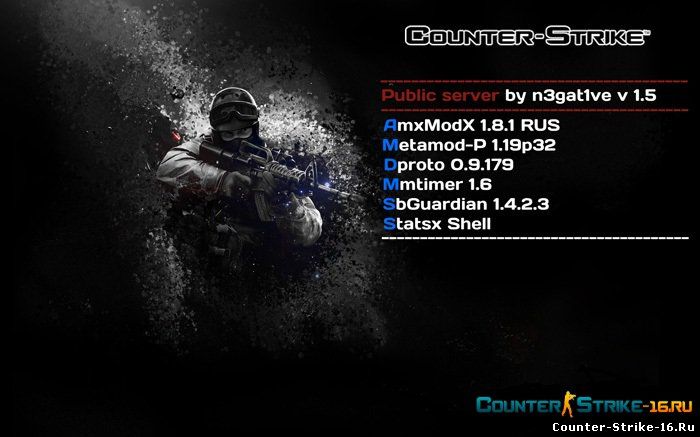Gotovij Server Csdm Pushki Lazeri
DMPUT NAME dmput − Migrates online files to offline media SYNOPSIS dmput [ -h] [ -n] [ -r [ -F byterange-list]] [ -v] [ -w] [ -V mspvglist] [ list] dmput [ -h] [ -n] [ -r [ -K byterange-list]] [ -v] [ -w] [ -V mspvglist] [ list] IMPLEMENTATION SGI systems licensed for the Data Migration Facility (DMF) and systems functioning as DMF clients. DESCRIPTION The dmput command migrates an online file to an offline medium. You can use this command to migrate files that you own; the system administrator can use this command to migrate any files.
This Pin was discovered by Elena Bratkovic. Discover (and save!) your own Pins on Pinterest. 0.6 2009-08-22.xn--p1ai/counter-strike-1-6-s-gotovim-layt-serverom-skachat.php 2010-06-08.
You must be root to migrate files you do not own. The dmput command accepts the following options: Option Description -h Causes the list to be treated as a list of Data Management API (DMAPI) fhandles rather than file paths.

The fhandle is the DMF representation of the DMAPI name for the file in the file system. -n Directs the dmput command to abort if the DMF daemon is not responding or if the daemon stops responding while the request is being processed. The default is to wait until the request has finished processing. -r Releases the disk data blocks associated with this file after the offline copies are made.
If this option is not specified, the disk data blocks are not released until automated space management determines a need for the disk blocks. -v Specifies verbose mode. This option is useful for administrators when trying to determine the cause of operational problems between DMF client commands and the server host machine. This option might cause the command to display more information regarding the cause of an error than the command does without the option, if such information is available.
The option is not useful in cases of normal client/server operation. -w Waits until all offline copies are completed before terminating. -V mspvglist Specifies a list of MSPs, VGs or Migrate Groups to which the file should be migrated. The values in the list may be comma-separated, with no white space. Alternatively, the list may be enclosed in quotes, and the values may be separated by white space. This option only affects the initial migration of a file.
If the -V option is not specified, the policies in the dmf.conf file determine the MSPs or VGs to which the file should be migrated. If this option is specified, the mspvglist is used, and the policies in the dmf.conf file are ignored, only when dmput is issued by the root user on the DMF server; otherwise the command behaves as if this option had not been entered. Canon mf 3010 service manual. If your site is using the Customizable Policy feature, the default behavior may be overridden. Please check with your administrator for any behavior differences due to Customizable Policies. -F byterange-list Specifies a list of byteranges to be made offline (freed); the rest of the file is kept online. Requires -r and must not be used with -K.

-K byterange-list Specifies a list of byteranges to be kept online; the rest of the file is made offline. Requires -r and must not be used with -F. List Specifies a list of file paths or fhandles to process. If you do not specify list, dmput processes file paths or fhandles read from standard input. NOTES The system administrator sets the migration medium used in the DMF configuration file. The files that you migrate must comply with the settings in the configuration file.
Unless you specify the -r option, the dmput command does not automatically release the disk space occupied by the file specified (by path or fhandle) in list. Although it is possible that the disk space will eventually be released if the file resides on a file system that is managed by automated space management, it is preferable to always specify the -r option rather than trying to determine whether and when the file space will be released. A byterange-list is one or more byteranges separated by commas. A byterange is of the form 'mmmm:nnnn' where 'mmmm' specifies the first byte in the range and 'nnnn' specifies the last byte in it.
Each of 'mmmm' and 'nnnn' counts from the beginning of the file if unsigned, and backwards from the end if preceded by '-'. The first byte in the file is byte '0', 'BOF', or 'bof', and the last one is byte '-0', 'EOF', or 'eof', so 'bof:eof', 'BOF:EOF', and '0:-0' all define a range covering the entire file.
A byterange may also of the form 'mmmm+llll' where 'mmmm' is a byte position as above, and 'llll' is the number of bytes in the range, starting at 'mmmm'. If 'llll' starts with a minus sign, it specifies a range of 'llll' bytes ending at 'mmmm'. Avic hd3 firmware update.